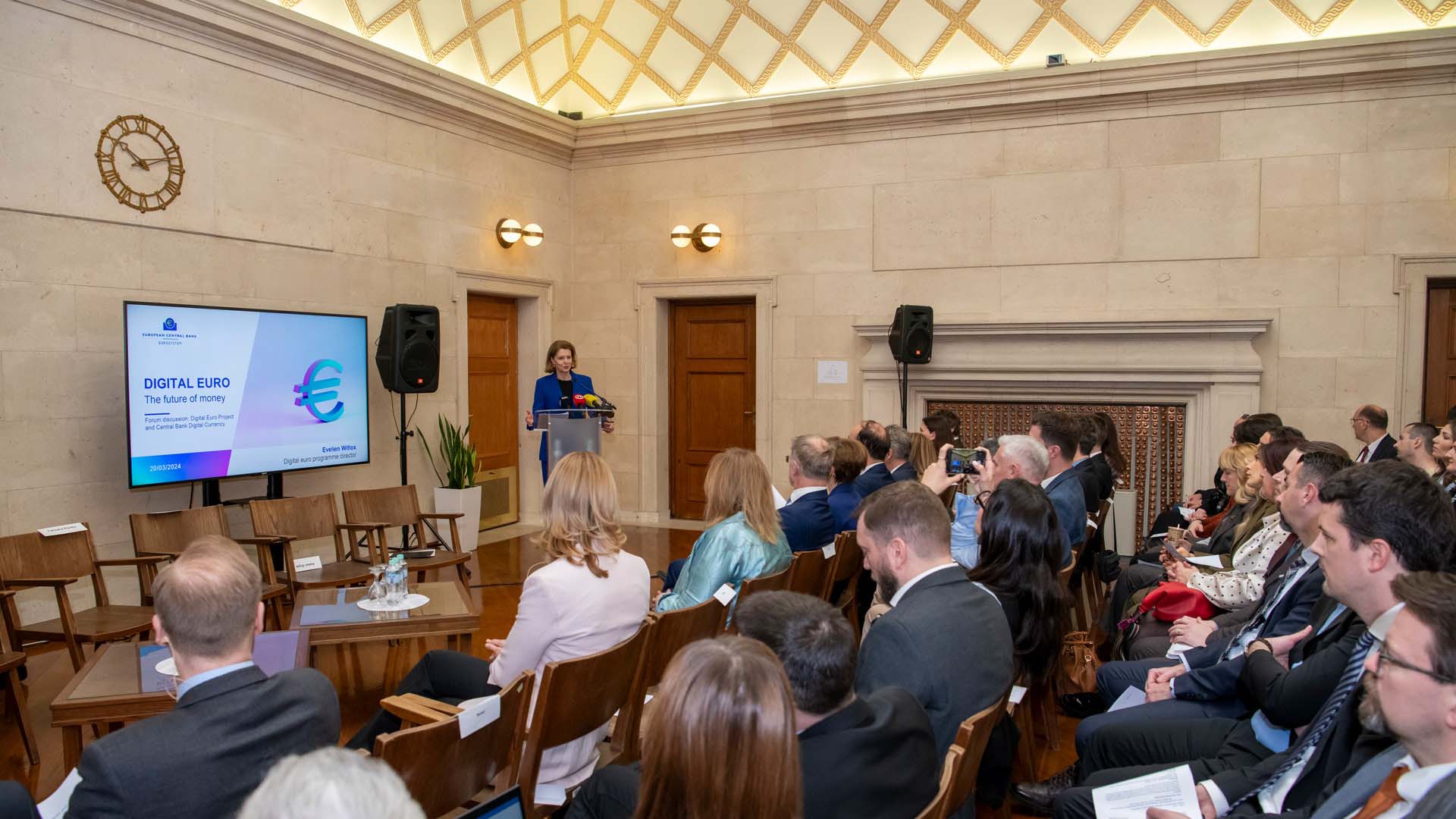
Evelien Witlox
“The concept of central bank digital currency (CBDC) and the digital euro is a very interesting and challenging one, raising a number of questions that this conference aims to address. The introduction of central bank digital currency is currently being considered in 100 jurisdictions around the World, and the motives for examining the introduction of a digital version of public money intended for the citizens vary from country to country, in the same way as approaches to CBDC. It should be noted that cash will remain a means of payment once the digital euro is introduced; the digital euro will not replace cash; instead, it will represent a digital form of cash that can also be used offline and thus enable payment transfers even when you are not connected to the internet. To continue to meet the needs of its users, our common European currency has to evolve hand in hand with citizens’ wishes”, noted Boris Vujčić, Croatian National Bank Governor today at the conference “The digital euro and central bank digital currency” hosted by the CNB. He stressed that the digital euro would offer the same inclusion and payment privacy as cash. “The introduction of the digital euro would make our financial transactions easier as we would be able to choose a secure means of payment that is accepted throughout the euro area. The digital euro will be accessible free of charge to all in the euro area, in the same way as cash today”, said Boris Vujčić.
Following the welcoming address given by Governor Vujčić, Evelien Witlox, Programme Manager of the digital euro project at the ECB remarked that the use of cash in the euro area had been decreasing and stressed the uniqueness of the digital euro, which combines the practicality of central bank money and the advantages of digital payments. “The digital euro would be widely accepted throughout the euro area as a complement to cash payments and other existing payment methods. As a pan-European solution under European leadership, the digital euro would strengthen Europe’s strategic autonomy, reducing our reliance on non-European payment service providers, and spur innovation and market competition in the European payments sector”, said Witlox.
The panel entitled “The digital euro” on the Eurosystem’s digital euro project was moderated by Sandra Švaljek, Deputy Governor of the Croatian National Bank. The second panel “Central bank digital currency” was opened by Geoffrey Goodell, Lecturer at University College London and was moderated by Ivan Mortimer Shutts, Advisor at Dataswyft and Linardo Martinčević, Advisor in the Office of the Governor and FinTech coordinator in the Croatian National Bank. During the second panel the participants exchanged views on the motives and approaches of selected countries to the introduction of the digital version of public money intended for citizens, and presented a comparative overview of the efforts of some of these countries in the area of CBDC.
Sandra Švaljek, Evelien Witlox, Tamara Perko, Rosa Giovanna Barresi, Aleksi Grym and Simon Anko
Panel participants, renowned experts working on the implementation of these projects, the representatives of central banks, academia and the private sector shared views to provide answers to some of the key issues related to CBDC and the digital euro.
